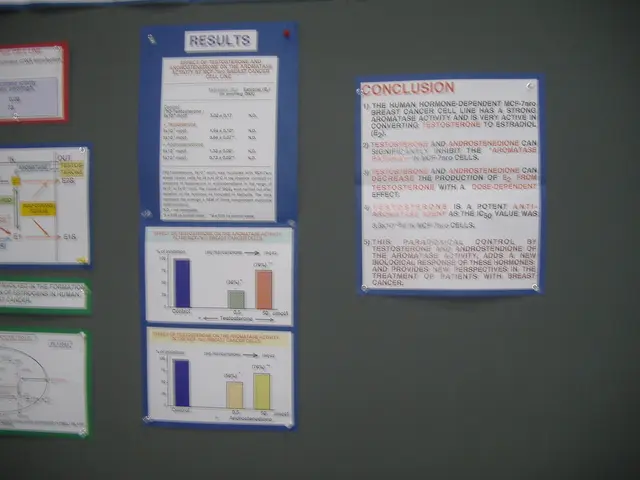Discontentment Among Germans Toward Their Healthcare System Reaches an All-Time High
In the heart of Europe, Germany's healthcare system is undergoing significant changes as it grapples with rising dissatisfaction and a substantial deficit in the health insurance sector. According to a recent Forsa poll, dissatisfaction with healthcare services has increased fivefold since 2021, with citizens criticizing the lack of appropriate services for their high contributions.
The proposed solutions to address this situation focus on financial stabilization, digital transformation, and structural reforms.
One of the key measures is cost-containment in pharmaceuticals. The German Constitutional Court upheld cost-control measures such as mandatory discounts on drug dispensing prices, helping to reduce pharmaceutical expenditure—a significant part of healthcare costs.
Another crucial aspect is the structural reform of statutory health insurance (GKV). There's a call to repeal some cost-containment regulations and implement targeted expenditure reductions to address the widening deficit in GKV finances. This includes tackling the rising gap between revenues and expenditures driven by demographic aging and increased healthcare demand.
Digitalization and telemedicine expansion are also being pursued. The implementation of electronic patient records (ePA), e-prescriptions, and mandatory offering of video consultations by SHI-accredited physicians aim to improve efficiency, patient access, and reduce administrative burden, potentially lowering costs and dissatisfaction related to accessibility and waiting times.
Primary healthcare system reforms are also being deepened to improve overall system sustainability and quality of care, contributing indirectly to patient satisfaction and healthier outcomes.
Balancing public (GKV) and private (PKV) insurance frameworks, with a view to possible future harmonization and expansion of digital tools, is part of long-term modernization strategies.
As the future of the healthcare system requires smart ideas and decisions, the financial situation of many citizens is strained, leading to concerns about getting sick for financial reasons. Contributions for health insurance are not sufficient to cover all running costs, making it crucial for the proposed measures to bear fruit and improve the current situation.
Read also:
- Trump's SNAP reductions and New York City Council's grocery delivery legislation: Problems for city residents highlighted
- Reducing dental expenses for elderlies in Sweden: Over 50% cut in charges for pensioners by the government
- Forty-year-old diet: A list of meal choices to savor
- Exiled Life's Conundrum: A Blend of Liberation, Disillusionment, and Distress







